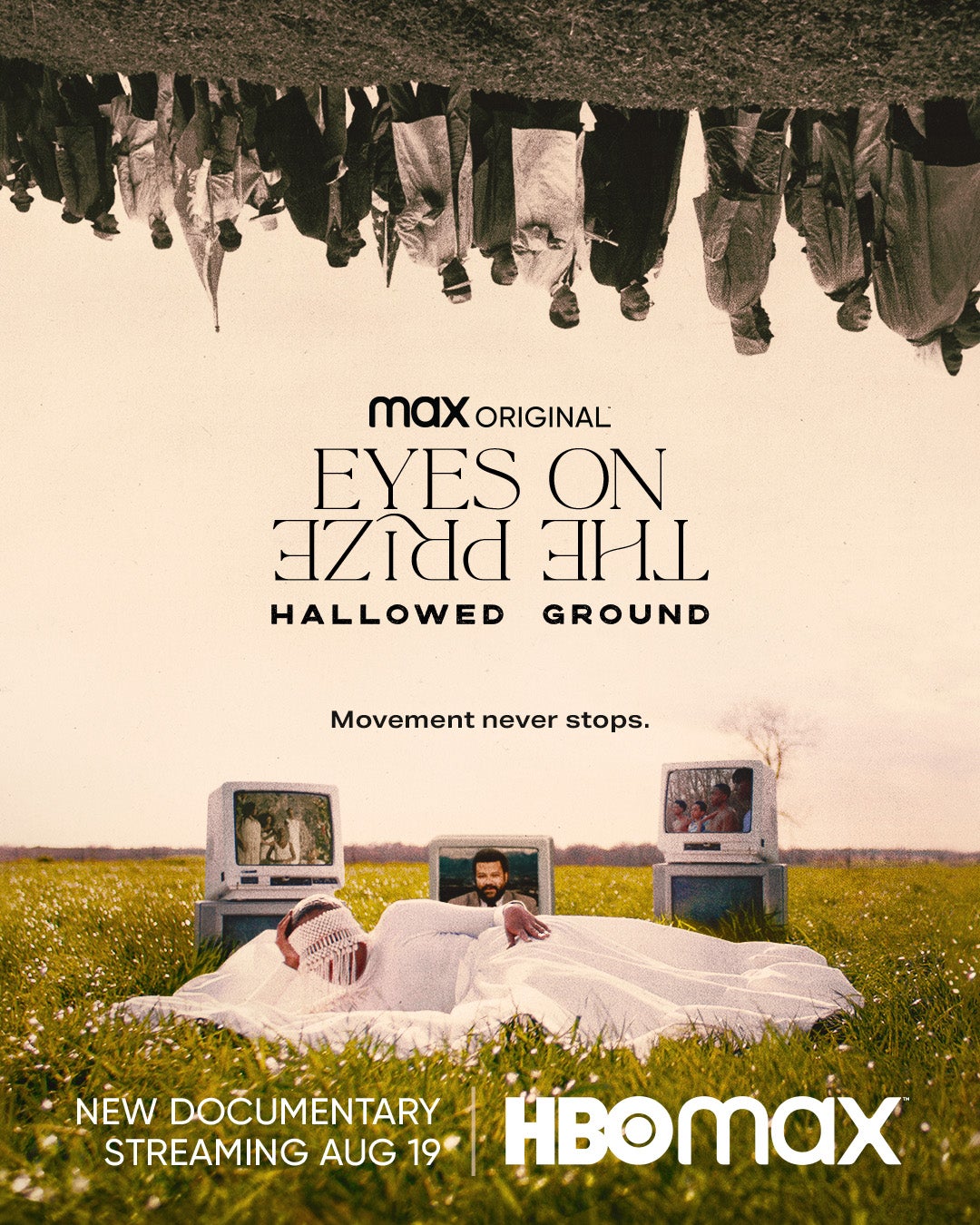“Movement has to continue, or it’s not movement.” These words, spoken by activist and “Me Too” movement founder Tarana Burke roughly halfway through HBO Max’s Original Documentary Special “Eyes on the Prize: Hallowed Ground,” encapsulate the theme of this film in the simplest terms.
Directed by Academy Award-nominated documentary filmmaker Sophia Nahli Allison and executive produced by Grammy-winning director Melina Matsoukas, award-winning storyteller and co-founder of Blackbird Mervyn Marcano, and co-founder and former executive director of BLM Patrisse Cullors, “Hallowed Ground” serves as a supplementary modern component to the original Oscar-nominated, Peabody and Emmy® Award-winning PBS documentary “Eyes on the Prize,” introduced to streaming for the first time today.

“Hallowed Ground” takes a closer look at the archival footage lovingly and meticulously captured for the original film by documentarian and historical archivist Henry Hampton over the course of nearly two decades. Testimonials and firsthand insight from political leaders and cultural figures with feet on the ground during the Civil Rights movement recorded by Hampton are now seamlessly tied to the voices of activists and burgeoning leaders of the modern movement, interspersed with creative visualizations of more abstract concepts such as ancestral rage. For Allison, continuing the narrative in this way is not only a privilege but a necessity for finding healing through a troubled past and a tumultuous present.
“I was just so honored to see this concept of honoring and reimagining ‘Eyes on the Prize,’ that I didn’t believe I could be a part of something so brilliant,” Allison shared. Though she was admittedly nervous about the opportunity to tackle such an integral record of African American history, she found adding continuation to the narrative to be a means of “healing history.”
“How do we take the legacy that Henry Hampton and Blackside (Hampton’s production company) have built, and really use that as the foundation to build a liberated vision of the future? To reimagine histories that have been traumatic, to reimagine histories of the future,” she wondered. “It became a beautiful journey of working with the archive and using the imagination to build a new component to introduce this young generation to ‘Eyes on the Prize,’ and reintroduce it to an older audience.”
Premiering July 19th on HBO Max, the film is a love letter to the 14-part docuseries that for many millennials, served as their first real cognition of what the fight against segregation, Jim Crow, and state-sanctioned white brutality in the United States truly looked like. For Marcano, his introduction to the film as a middle school student by a zealous school principal who made sure they watched portions of the film during lunch helped inspire him to use his talents and passions in service to the movement as an adult.
“Up until that point, I think we were forced to understand civil rights as being all about Martin Luther King and Malcom X and not much more than that,” Marcano said, noting that the documentary taught him how many hands it takes to spin the wheel of change. “Seeing all of these incredible folks in all of these incredible roles helped me understand that there are many ways to participate in movement. You have field organizers, people who knock on doors, folks who are focused on communications and storytelling, which is my passion. Something that looks spontaneous or just like an eruption of energy is actually a concerted and diligent effort of many people.”
Among those people, which may not have been as readily apparent in past documentation of of the fight for change, are Black women, queer, and transpeople. This new iteration of “Eyes on the Prize” makes sure to include lesser known and erased legacies of leadership from Black women and members of the LGBTQIA community who have made huge strides toward the advancement of African Americans, but aren’t often highlighted in history. Though these omissions are touched on in the documentary, Cullors feels that it’s an opportunity for corrective recognition rather than a judgement on oversight of the source material.
“It’s not a critique as much as an observation and a reformation of what has always been true and what is important to notice,” Cullors said. “There’s so many reasons why the movement looked the way it looked in the past, and so many reasons why it looks the way it looks now and why we have more openings now. It was an opportunity to open the door to what is true about Black women’s leadership and queer and transpeople’s leadership. When you know better, you do better.”
While it has made tremendous strides over the past few generations, the journey for Black liberation in this country is far from over, a point from which this film does not shy away. Even the name of the film, “Hallowed Ground” conjures the concept of sites of recent slayings that have driven the movement (Mike Brown, George Floyd, Breonna Taylor, etc.) becoming spaces that hold heavy significance. With that in mind, the filmmakers hope to reveal the throughline in the stories of today and yesterday, while conveying a message of hope.
“I’d love this generation to see how a movement evolves. How we grow, and we stand on our past and our ancestors and our history, and take that knowledge and education and build towards a very promising future,” Matsoukas said. “Also that activism takes many forms, and finding the time to incorporate remembrance, celebration, and safety into the fight. I think finding that balance is really important and I hope that the film really speaks to all of those elements of the movement.”
TOPICS: hbo max Melina Matsoukas Patrisse Cullors
The post Melina Matsoukas, Patrisse Cullors Come Together To Create ‘Eyes on the Prize: Hallowed Ground’ appeared first on Essence.


0 Commentaires